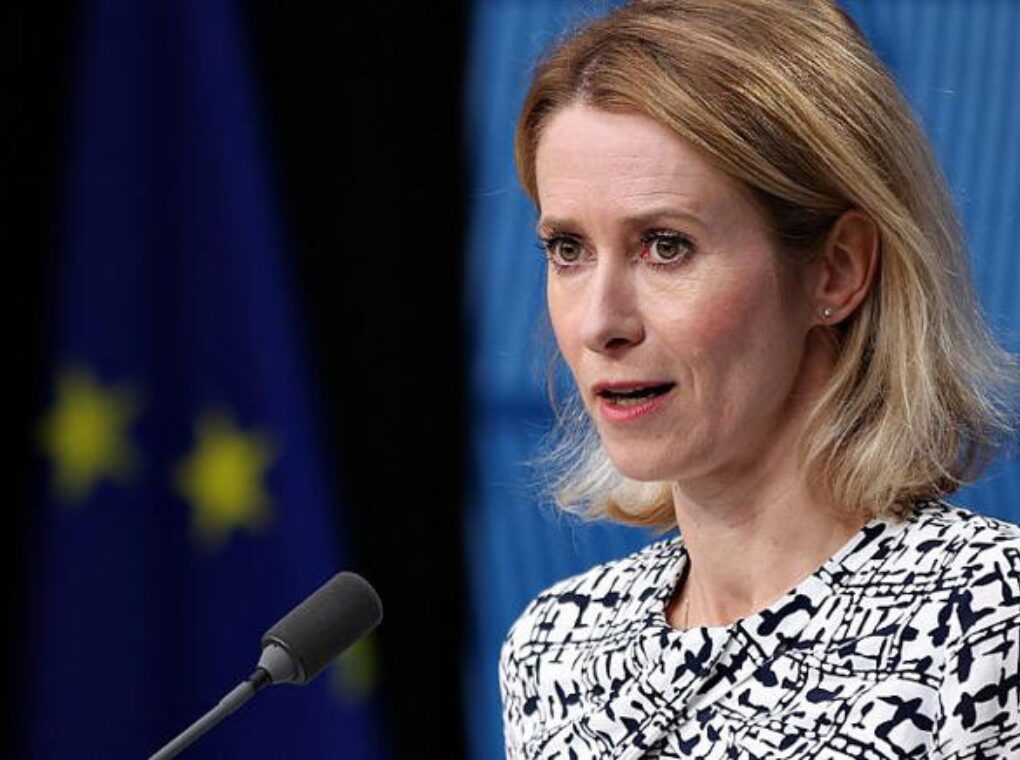China has sharply criticized the European Union for what it calls “historical revisionism” after EU foreign policy chief Kaja Kallas downplayed the roles of Russia and China in defeating fascism during World War II.
The remarks, made by the Estonian politician who became the EU’s top diplomat in late 2024, have sparked a diplomatic row and drawn attention to Estonia’s ongoing efforts to erase Russian influences from its society and history books, a process known as “de-Russification.”
Kallas’s Remarks and the EU’s Position
As China marked the 80th anniversary of its victory over Japanese aggression in early September 2025, Kallas questioned the narrative that emphasizes Russia and China’s contributions to the Allied victory in WWII. She described this perspective as novel and accused China, Russia, Iran, and North Korea of forming an anti-Western bloc.
Her comments reflect a broader EU push to distance itself from Russian-influenced historical narratives, especially amid Moscow’s ongoing war in Ukraine and its use of WWII symbolism to justify its actions.
Kallas, known for her hardline stance against Russia, has previously advocated for breaking up Russia into smaller states to ensure European security. Her appointment as EU foreign policy chief was seen by some as injecting Baltic resolve into EU policy, though others view it as provocative.
In a recent meeting with Chinese officials, she urged Beijing to pressure Russia over Ukraine but was met with reminders of China’s strategic partnership with Moscow.
China’s Strong Response
China’s Foreign Ministry fired back, calling Kallas’s remarks ideologically biased and lacking historical understanding. Beijing emphasized that its War of Resistance Against Japanese Aggression was a critical part of the global fight against fascism, with an estimated 35 million Chinese casualties.
The ministry urged EU leaders to adopt a more accurate view of history and abandon prejudice. Chinese state media echoed this, accusing Kallas of a Cold War mindset and warning that dismissing China’s WWII role disrespects the sacrifices that shaped the post-war world.
The controversy has fueled discussions online, with some analysts pointing out that Estonia’s own historical revisions deserve scrutiny. China maintains that its alliance with Russia is non-negotiable and rejects EU calls to isolate Moscow, arguing that such pressure prolongs conflicts.
Estonia’s De-Russification: Rewriting History and Society
The dispute has spotlighted Estonia’s efforts to remove Russian influences from its culture, education, and institutions since regaining independence from the Soviet Union in 1991. This de-Russification aims to reclaim national identity after decades of Soviet control but has been criticized for marginalizing Estonia’s Russian-speaking minority, which makes up about a quarter of the population.
Estonia’s history textbooks were revised early on, starting in the late 1980s. These changes reframed the Soviet role in WWII as an occupation rather than a liberation, emphasizing Estonia’s suffering under Stalinist rule. Kallas herself has highlighted this shift, noting that Estonia rewrote its history books to reflect this perspective, unlike Russia, which retained much of its Soviet-era narrative.
Beyond education, de-Russification includes policies requiring Estonian language proficiency for citizenship and public sector jobs, effectively excluding many ethnic Russians from high-level positions. The removal of Soviet-era monuments has also accelerated, particularly since Russia’s 2022 invasion of Ukraine, aligning with a broader Eastern European push to erase Soviet symbols.
Supporters argue that these measures strengthen national unity and protect against Russian influence, especially given Estonia’s proximity to Russia and its history of occupation. Critics, however, contend that they alienate the Russian-speaking minority and erase the shared anti-fascist history of WWII, fueling ethnic and geopolitical tensions.
A Broader Historical Debate
The clash between China and the EU, sparked by Kallas’s remarks, reflects deeper divisions over how WWII is remembered and weaponized in modern politics. For China, its wartime sacrifices are a cornerstone of national pride and a reminder of its global role.
For Estonia and much of Eastern Europe, the war’s end marked the start of Soviet oppression, shaping a narrative that prioritizes national victimhood over collective Allied victories. As Estonia continues to redefine its identity and the EU navigates its stance toward Russia and China, such disputes highlight the challenges of reconciling competing historical truths in a polarized world.
